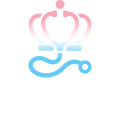Understanding the Role of Medical Providers & Hormone Therapy
The goal of our providers is to partner with patients to help the individual achieve medical care goals to reduce gender dysphoria and increase quality of life. Of course with diversity of gender comes diversity of treatment plans. Some individuals find relief from dysphoria with social and emotional affirmation and others find hormone therapy to be a medically necessary part of their treatment.
Hormone therapy prescribing providers include Physicians (MD, DO), Physician Assistants (PA) and Nurse Practitioners (NP) of different medical specialties such as Internal Medicine, Family Medicine, Pediatrics, Endocrinology and Obstetrics and Gynecology that have participated in clinical education regarding the provision of this care. The standards of care consulted for these medical decisions are outlined by well-established organizations such as the World Professional Association for Transgender Health WPATH and the Endocrine Society.
Feminizing/masculinizing hormone therapy is sometimes prescribed by providers as part of the medical care of individuals who identify as transgender or non-binary who are seeking increased alignment of gender identity and gender expression. Hormone therapy is an individualized decision in partnership with providers. Generally, the informed consent model is followed when prescribing hormones for individuals over the age of 18. Under the age of 18, medical providers coordinate care with mental health providers to support youth and families in making decisions about timing, puberty suppression, or initiating hormone therapy.
Hormone Therapy
Puberty suppression medications used in gender diverse patients are the same as those used in cisgender patients to halt the pituitary gland from progressing with puberty until a young person ages. Hormone blockers vary by sex assigned at birth and work to counter hormones naturally produced in the body to counter the development of secondary sex characteristics. Puberty suppression creates more time for youth to allow for gender identity consolidation, which often occurs alongside parental efforts to increase their education to assist with informed consent. Individuals who are treated with puberty suppression or blockers will return to natal puberty if discontinued and are considered completely reversible interventions that can be lifesaving.
Feminizing hormone therapy is used to help an individual to develop breasts, change the shape of the body, and change some of the growth pattern of body hair. Providers will use estrogen therapy as well as testosterone suppression therapy as medical means of therapy.
Masculinizing hormone therapy is used to help an individual to help develop facial and body hair, deepen voice, change shape of face and body, and stop the menstrual cycle. Primary care services provided to transgender and non-binary individuals include annual preventative care screenings based on anatomical organs present. Examples of preventative care screenings include breast cancer screening via mammograms of chest and breast tissue, cervical cancer screening via Pap smears and prostate cancer screenings.
Of course gender diverse people also need general care unrelated to their gender. We understand the value of identifying providers such as primary care, dentists, nutritionists, pharmacists, and others who are affirming and knowledgeable as well as sensitive to privacy and affirmative care considerations around pronouns and issues related to legal/insurance related documentation considerations.
Massage can be vital to healthy movement and pain management, but it can also just be a treat to relax. If you bind your chest, it’s important to take time to address the muscles between your ribs and even your shoulders to make sure your breathing is not restricted. This can also make binding more comfortable and less damaging, especially if you bind more often than not. Whatever your reason for wanting or needing massage, it is vital that you are respected and treated by professionals who will not treat you based on your assigned sex or how you look.
A healthy relationship with food is a vital part of physical, mental, and emotional health and a crucial component of living well in our experienced gender. Societal norms and messages about food and weight are detrimental to our ability to listen to the wisdom of our own bodies.Self-care often takes a backseat to following this “diet” or that “healthy lifestyle”. The pressures of gender norms and the trauma of being marginalized can result in disconnection from our needs.
A registered dietitian can help clients enhance their self-care, experience a better relationship with their bodies, and find safety in being well-nourished.

